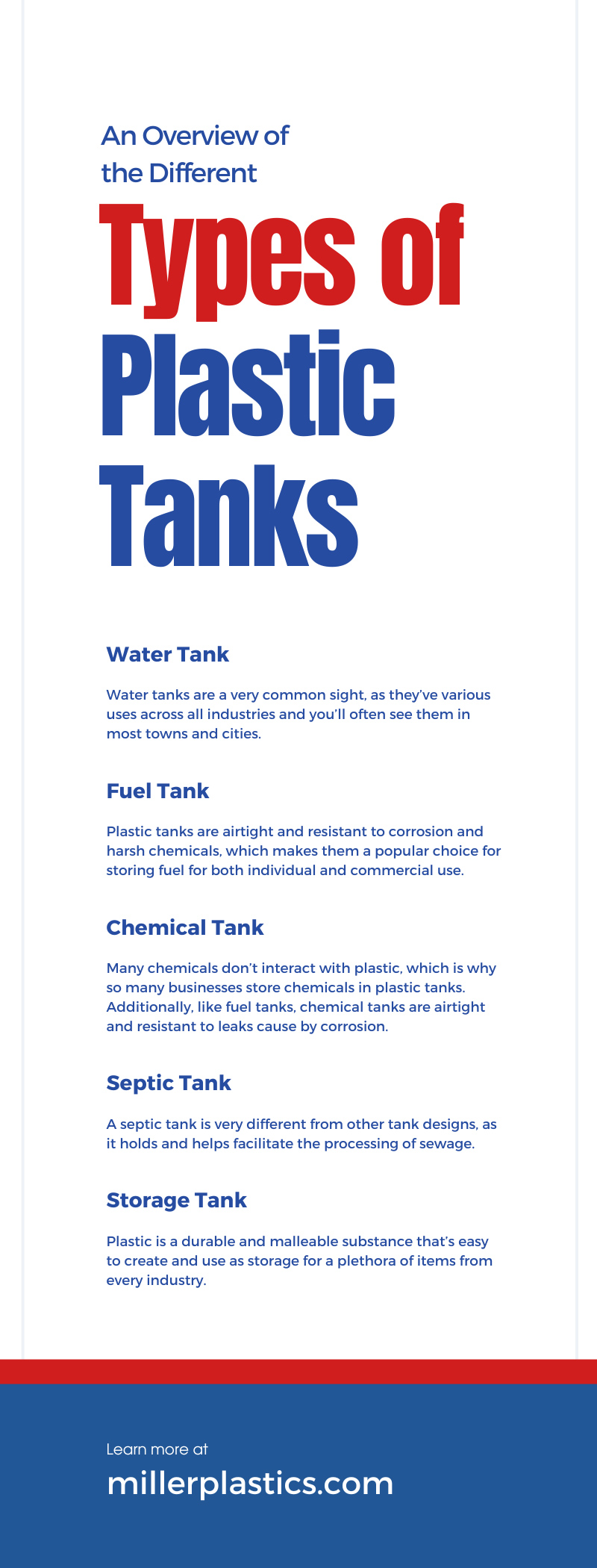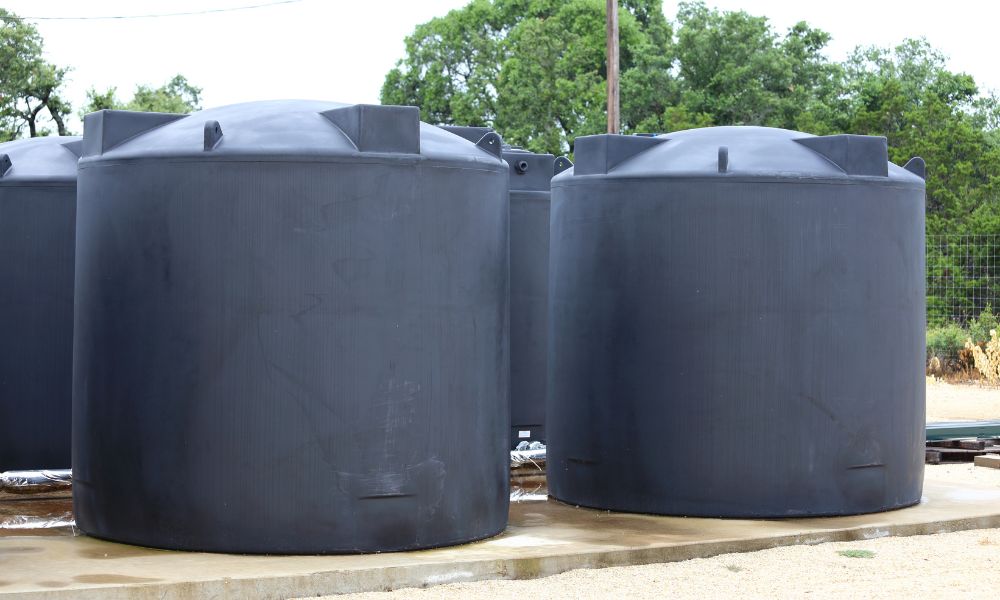Plastic tanks are a very common tool both individuals and businesses use to store various items and fluids. However, there isn’t just one kind of plastic tank that everyone uses, there are many different plastic tanks that people utilize all the time. Here’s a deeper look at the types of tanks available for use.
Tank Structures
The first thing to understand is that plastic tanks can have many different structures, which impact how you can use them. This section will cover many common structures used around the world.
Vertical Tanks
These tanks have thick walls and are perfect for general use, which is why they’re so popular. Most people use these tanks to hold liquids above ground, as the walls are too thick to be useful underground. They’re great for storing things you need to access quickly and often.
Horizontal Tanks
These tanks are perfect for transportation, as you can hook them up to a large truck or trailer. As such, they’re easy to load and unload so it’s simple to transport all sorts of goods. Additionally, they normally have a low center of gravity to prevent them detaching from a vehicle during transportation.
Underground Tanks
Some tanks are used for underground storage, which requires special construction so they can last a long time. These tanks can serve many purposes, but are commonly used to store things out of sight. This includes storage for sewage purposes or hiding valuable items underground. You can also use them if you’ve little storage space aboveground.
Silo Tanks
Silo tanks have a framework that keeps the base of the tank off the ground, so you can access the tank from underneath and make loading and unloading easier. These tanks are great for both liquids and produce, such as corn or grain.
Double Wall Tank
These are essentially tanks within tanks and offer the most protection when holding dangerous or environmentally hazardous materials. While most people won’t need these tanks, they see a lot of use in the mass production and chemical industries as they can hold the many hazardous materials these industries require.
Cylindrical Tank
A cylindrical tank is a large round tank that lays sideways and is particularly useful for storing liquids that may cause corrosion or damage. These are popular in the pharmaceutical and chemical industries.
Stackable Tanks
Stackable tanks are unique, as they form a modular system that stacks and locks in various ways, saving room and giving you flexibility to store what you need. These tanks can come in all sorts of sizes, from as little as 30 gallons to hundreds of gallons. It all depends on your storage needs.
Types of tanks
Though tanks can take many structures, the different types of tanks depend on what they can house. Different materials require vastly different methods and styles of tanks to properly store your items. Which is why plastic tank manufacturers create a wide variety of tanks. That’s why it’s important to understand what type of tank you might need.
Water tank
Water tanks are a very common sight, as they’ve various uses across all industries and you’ll often see them in most towns and cities. Water tanks are useful for supplying and storing water wherever you need and no matter the use.
Fuel Tank
Many materials are ineffective or inefficient when it comes to storing fuel, as the fuel will corrode and leak out of the container. However, plastic tanks are airtight and resistant to corrosion and harsh chemicals, which makes them a popular choice for storing fuel for both individual and commercial use.
Chemical Tank
There are thousands of chemical types, and each can react differently to their casing. However, many chemicals don’t interact with plastic, which is why so many businesses store chemicals in plastic tanks. Plastic chemical tanks are airtight and resistant to leaks cause by corrosion.
Septic Tank
A septic tank is very different from other tank designs, as it holds and helps facilitate the processing of sewage. These underground tanks hold the sewage in and process it so it can safely reenter the environment.
Storage Tank
Plastic is a durable and malleable substance that’s easy to create and use as storage for a plethora of items from every industry. Whether it’s harsh chemicals or bulk craft supplies, a plastic tank is a great storage solution.
Why You Should Get Plastic Tanks
So, now that you understand more about the different types of plastic tanks, here’s a look into why you should consider investing in one for your business. Whether you’re an individual or a corporation, you can find a good use for plastic tanks.
Corrosion Resistant
Plastic is one of the cheapest and most consistent materials that can resist corrosion from most chemicals and substances. While it’s not perfect for every material, plastic is naturally resistant and will work for the majority of businesses, especially if you need specific plastic tanks for your storage needs.
Lightweight
Another huge benefit of plastic is that it’s way lighter than most other material options that accomplish the same goal. Metal is highly durable and can resist corrosion, but it’s also very heavy in comparison to plastic tanks of the same size. That lighter weight is very important for construction and mobility.
Save Money and Easy Installation
The last reason why plastic tanks are so useful is that they save a lot of money on similar materials that accomplish the same goal. Long-term massive storage can get quite expensive, and saving money on it by having a plastic tank, or two, installed can help your business’s bottom line and make your storage solutions more accessible. Additionally, plastic is easy to install because it’s lightweight and easy to move around.
That’s why understanding plastic tanks can be so useful and important. It can make a huge difference when it comes to how you store your items, which items can store, and how you structure your storage. It can even improve your business’s finances because you save money.





